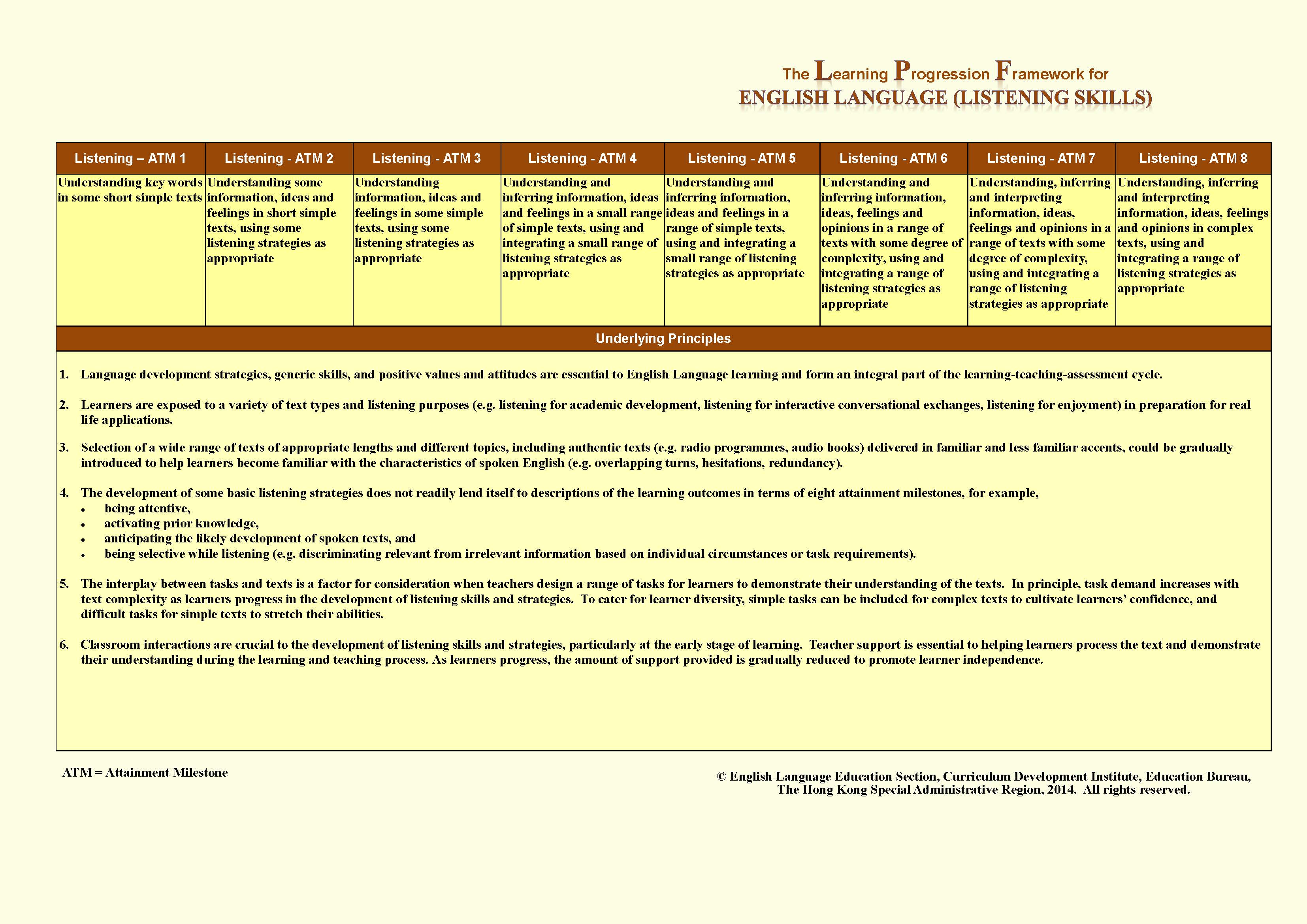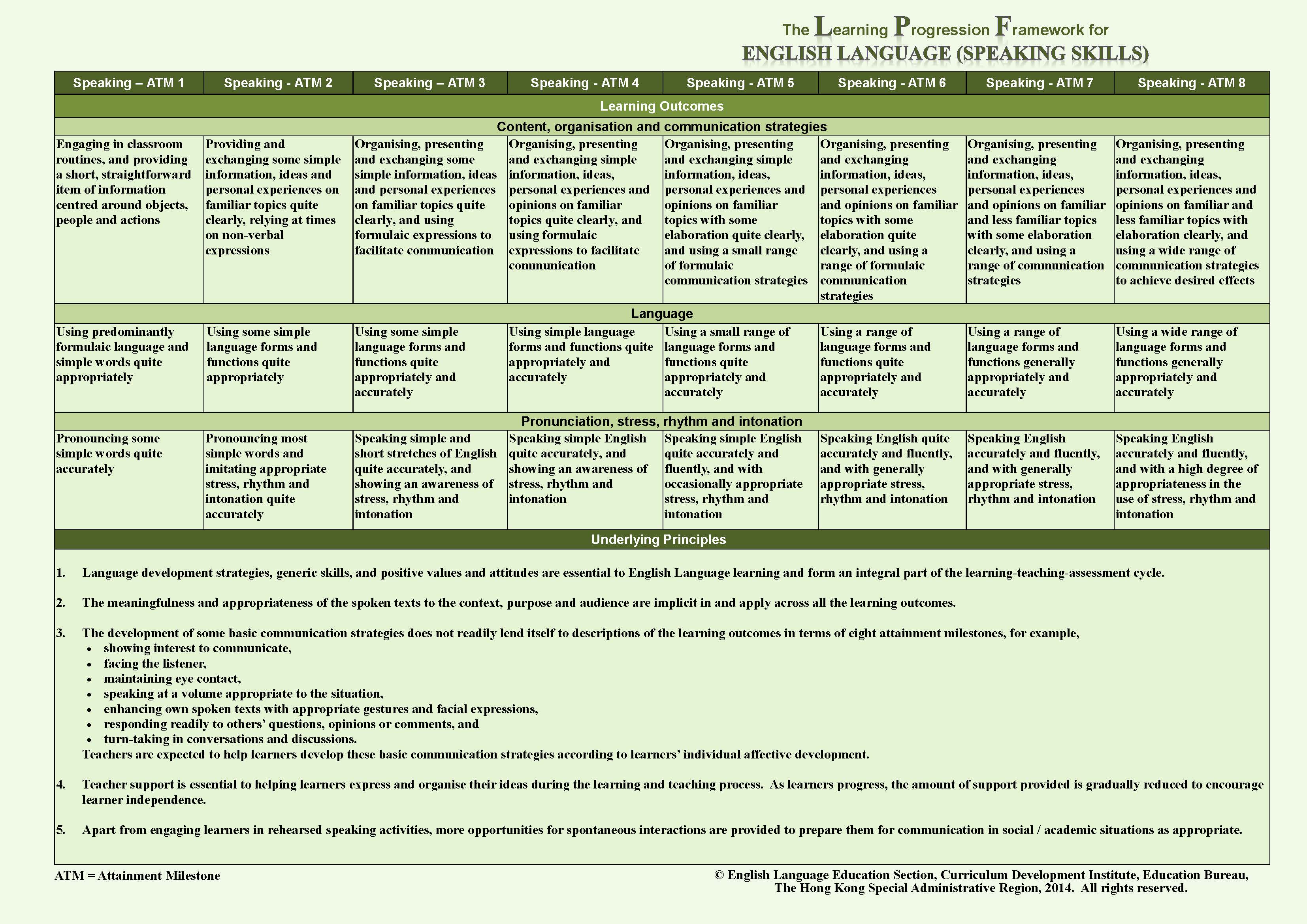The Learning Progression Framework (LPF) provides a common scale and language for teachers to describe students’ performance and progress in English Language learning. It consists of different levels of learning outcomes (LOs) and descriptors about the growth of students on a continuum as they work towards the learning targets and objectives set out in the English Language curriculum. The continuum is divided into eight attainment milestones (ATMs) for each of the four language skills (i.e. listening, speaking, reading and writing) from the basic level (ATM 1) to the advanced level (ATM 8). While the ATMs are expressed in the form of outcome statements, which give general descriptions of students’performance, pointers are specific examples of what students are able to do in demonstrating the LOs, which support the outcome statements. It should be noted that the pointers are meant to elucidate the LOs. They are neither prescriptive nor exhaustive, and must not be regarded as a checklist for English language development. As these ATMs can provide a clear focus and direction for learning, teaching and assessment throughout primary and secondary education, schools are encouraged to make reference to the LPF when they plan and review the school English Language curriculum and assessment, instead of relying solely on the Basic Competency Descriptors for the Territory-wide System Assessment (TSA), which represent only part of the essential knowledge and skills to be acquired by students in relation to the learning targets and objectives for KS1 – 3.
Listening Skills

Speaking Skills

